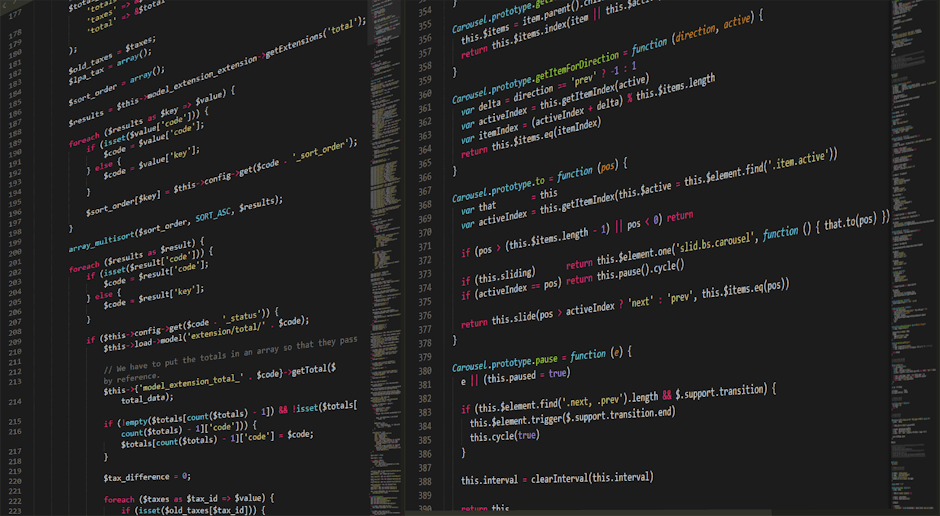
So, like, you’re sitting there, maybe thinking about a new job or just something cool to learn, and making phone apps pops into your head. That sounds pretty neat, doesn’t it? But then, the big question usually hits you: how long does it actually take to learn mobile app development? It’s a question a lot of people ask, you know.
It’s really not just a quick answer, like saying “oh, three months” or something simple like that. There are so many moving parts that go into it, so many little things that can stretch it out or maybe even speed it up for some people. It’s definitely not a straight line from zero to app-making hero. Some folks pick it up quicker, others need a bit more time. It just depends.
And it is not just about the coding part either, which is what many people typically think when they picture learning to build an app. There’s also the thinking about what the app will do, how it will look, and if people will actually want to use it once it’s out there. That stuff counts too, a lot.
A lot of the time, people just want to know if it’s something they can realistically fit into their busy lives, which makes sense. You don’t want to start something massive if you’re not going to finish it, right? It’s kind of like wanting to bake a fancy cake and wondering how many hours you’ll spend in the kitchen.
What makes it even more interesting for those looking to jump in during 2025 is how much things change. Technology just keeps going and going, getting newer and sometimes even a little bit different. So, the learning process for making mobile apps, it’s not a static thing, it changes too.
The internet is full of places where you can learn this stuff now. From online courses that cost money to free videos on YouTube, there are just so many ways to get started. Finding the right path for you, that’s another piece of the puzzle to figure out.
Sometimes, thinking about all these pieces might seem a bit overwhelming, which is a normal feeling. But it really is a skill that can be picked up by nearly anyone with enough dedication. It is just a matter of how much time you are willing to put into it.
What Even Is Mobile App Development, Really?
Before we talk about how long it might take, it’s good to just get a handle on what we’re actually talking about here. Mobile app development, at its core, is just making computer programs that run on phones or tablets. That’s the simple version of it, anyway. People normally use these programs every single day.
There are mostly two big groups of phones out there that apps get made for. You’ve got the iPhones, which run on Apple’s iOS system. Then there are all the other phones, like Samsung or Google Pixel, which typically use Android. Building an app for one often means you’ll have to do some different work for the other.
Sometimes people choose to learn just one, like only iOS app making, because that’s a lot to learn already. Other times, someone might want to make an app that works on both kinds of phones without having to write two completely separate sets of code. That’s called cross-platform development.
The tools for making these apps, they keep changing, which is something you definitely need to keep track of as you go on your learning journey. For Apple stuff, you’re probably looking at Swift or Objective-C. For Android, it’s usually Java or Kotlin. Cross-platform might mean things like React Native or Flutter.
It is honestly a pretty big field, with all these different languages and systems. You don’t usually need to learn absolutely every single thing right from the start. Picking one path and sticking with it for a while usually works best for beginners. That gives you a solid base.
Just getting to grips with what each of these things does and how they generally work, that can take a little bit of time on its own. You are kind of setting up your mental workbench, so to speak. This first part, understanding the landscape, it’s not something to rush.
Learning mobile app making means you’re going to be doing more than just coding. You are also going to think about how people use the app, like where buttons should go and what text shows up. This is often called user experience, or UX, and it’s super important too.
The Big Picture: Factors That Change How Fast You Learn
So, you’re probably wondering, “okay, but how long for me?” The truth is, how quickly you pick up mobile app development, it really depends on a few different things that are about you and your situation. Not everyone starts from the same place, you know.
One really big thing is if you already know some coding or any sort of computer programming. If you’ve messed around with Python or JavaScript before, you’re not starting completely from scratch. You already have some mental pathways built up for how code works and thinks.
People who have never, ever written a single line of code, they typically need to spend a bit more time getting used to the very basic way computers “talk.” That’s not a bad thing at all, just a normal starting point. It just adds a little bit more time to the initial phase.
Then there’s the amount of time you can actually put into learning each day or week. Someone who can spend three or four hours every single day, they’re going to move a lot faster than someone who only has a few hours on the weekend. That’s just common sense.
Consistency is also very important, it is. Even an hour every day is often better than trying to cram in ten hours once a month. Your brain needs to keep revisiting the stuff to really make it stick. Little bits often, that’s a good way to go about it.
What kind of app you want to build also plays a role in how long the learning period will be. If you’re hoping to make something super simple, like a basic calculator, that’s a different story than if you want to make the next big social media platform. Simpler usually means faster to learn for the first version.
And then there’s how you like to learn. Some folks do great with online courses that walk them through step-by-step. Others prefer to just jump into a project and figure things out as they go, looking up answers when they get stuck. There’s no single right way.
Having a good teacher or mentor can also really speed things along, for real. They can explain things in a way that makes sense to you, and they can usually help you get unstuck when you hit a wall. That can cut down on frustration time.
If you’re looking for help with app making, maybe even for your business, finding the right people is important. For instance, if you’re in the Houston area, you might look into Mobile app development Houston services to help you build something without having to learn it all yourself. That’s a completely different approach but often a good one for businesses.
A Rough Idea: How Long Does It Actually Take to Get Decent?
Alright, let’s try to put some numbers to it, but remember, these are just general guidelines, not set-in-stone rules. Your mileage, as they say, may vary quite a bit. It’s not like a math problem where there’s just one answer.
For someone starting with absolutely no coding experience at all, just getting the basics down and being able to make a very simple, maybe not-so-pretty app, that usually takes about 3 to 6 months. This is assuming you put in maybe 10-15 hours a week. That’s for like, really basic stuff, a single screen, a button that does one thing.
After that initial phase, if you want to be able to build a somewhat functional app that connects to the internet or stores some data, something you might actually show to friends, you’re probably looking at another 6 to 12 months. This is to get more comfortable with coding and app concepts. This usually means around 15-20 hours a week for consistent progress.
To get to a point where you could realistically build an app that someone might actually pay for, or an app that’s really polished and user-friendly, that generally takes even longer. We’re talking maybe 1.5 to 2 years, or potentially more. This is where you really start getting good at solving problems and making things work smoothly.
This longer time frame also includes learning how to properly test your app, how to make it look nice, and how to deal with all the weird bugs that inevitably pop up. It’s not just about getting the code to run, but getting it to run well and reliably.
It is also important to remember that “learning” is an ongoing thing in this field. Even professional app makers are always learning new things, new tools, and new ways of doing stuff. The technology just keeps evolving, which is kind of cool but also keeps you on your toes.
So, don’t think of it as a finish line you cross and then you’re done forever. Think of it more as a journey where you keep picking up new skills and refining old ones. The main goal is to get good enough to make the things you want to make.
The timeline really does adjust based on your goals. Do you just want to fiddle around with it as a hobby? Or do you want to make a career out of it? The career path typically needs more time and more thorough learning, that’s just how it usually goes.
Keeping At It: Why Consistency is The Real Trick
You know, getting started is one thing, but actually sticking with it for the long haul, that’s often where people find it tough. It’s easy to get all excited at the beginning, downloading all the tools and watching a few videos. But then, things get a bit hard.
Consistency, just doing a little bit every day or most days, that’s the actual game changer. Even if it’s just 30 minutes, keeping that routine going really helps your brain hold onto what you’ve learned. Plus, it stops you from feeling totally lost when you pick it up again.
When you hit a bug, which you absolutely will, it’s really tempting to just give up for the day, or even longer. But pushing through those tricky moments, that’s where the real learning happens. It’s like lifting weights; the struggle makes you stronger.
Finding a learning routine that works for your life is important too. Don’t try to force yourself into a schedule that’s just not going to happen. If evenings are your only free time, then make that your learning time. If mornings work, great. Just make it a habit.
Having little projects you’re working on, even super simple ones, also helps a lot. It gives you a reason to practice the new things you’re learning and see how they actually work in a real little app. That can be very motivating.
Also, don’t be afraid to ask for help when you get stuck. There are so many online communities, forums, and even local meetups where other app makers hang out. Most people are usually pretty happy to lend a hand and share what they know.
It’s a long process, but it is one that can be really satisfying when you finally see your app running on a phone, doing what you designed it to do. That feeling of making something from scratch, it’s pretty great. Just keep at it, little by little.
So, to wrap things up, how long does it take to learn mobile app development? It’s kind of like asking how long it takes to get good at playing a guitar. Some people have a natural feel for it and pick it up quicker, others need more steady practice. But with enough consistent effort, anyone can get there. It’s a journey, not a sprint.
Frequently Asked Questions about Learning Mobile App Development
Q1: Can I learn mobile app development in three months?
A: Getting a very basic grasp of things and building a super simple app could be done in about three months if you really put in many hours every day. But becoming good enough to make something more complicated, that usually takes longer than just three months.
Q2: Do I need a computer science degree to learn app making?
A: No, absolutely not. Many successful app makers are totally self-taught. A degree can help, but it’s really not a must-have requirement to get started or even to get a job in app development. There are lots of other ways.
Q3: Which is easier to learn first, iOS or Android app development?
A: Neither is generally “easier” than the other; they just use different tools and languages. Many find Swift for iOS a good starting point because it’s considered pretty modern. However, if you have an Android phone, you might find learning Android more motivating.
Q4: How many hours a week should I spend learning?
A: For consistent progress, aiming for at least 10-15 hours a week is a good idea, especially when you’re just starting out. More hours will probably speed things up, but consistency is usually more important than cramming in a lot of hours occasionally.
Q5: Is it too late to learn mobile app development in 2025?
A: Not at all! The demand for mobile apps just keeps growing, and new tools are always coming out that can even make it a bit easier to get started. It’s a field that’s always changing, so there’s always something new to learn anyway.






